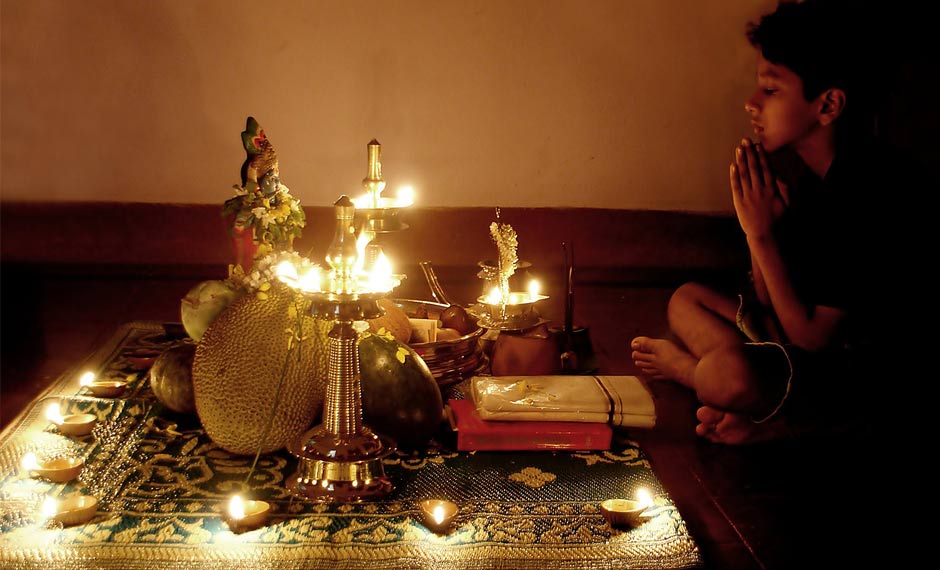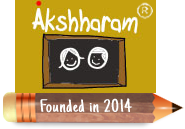Konnapoo, Kaineetam, Kani, and more—all you need to know about Vishu

Another summer is here, and the golden Kanikonna are all in bloom to welcome yet another Vishu in Kerala. Cheeky children stretching their arms for kaineetam, the blooming konnapoo everywhere, and the enchanting Vishukani—Vishu is truly saturated with the golden hues of happiness. Akshharam Malayalam language reading class online wishes you a very happy Vishu and summer ahead.
But before we indulge in all the merrymaking, let's learn a little about Vishu. When did it begin, why do we celebrate it, and what are the customs and traditions of Vishu? Let’s find answers to all of these questions and celebrate this Vishu with clarity. We live in the land of festivals and celebrations, and irrespective of religion, most of our traditions have deep philosophies and social values associated with them. Knowing and learning these values is what makes our celebrations truly sweet, right? So here we go. Let's get into the lore of Vishu!
The history of Vishu
Vishu is celebrated at the peak of summer, and it usually falls on the 14th or 15th of April. But when did we start celebrating, and why? Many scholars of history have concluded that the Vishu celebration started during the reign of King Sthanu Ravi, which was between 844 AD and 855 AD. The Trikodithanam Shasanam, written between AD 962 and 1021, also mentions Vishu, which would mean that by that time it was already a significant celebration.
Even though, according to the Malayalam calendar, Chingham 1 is the new year, Vishu is celebrated as the astronomical new year in Kerala, and it is also considered a harvest festival that marks the arrival of spring. The word Vishu originates from the Sanskrit word ‘visuvam’ which means equal; this hints at its association with the spring equinox. Lord Krishna is the central deity of the Vishu celebration because, according to myths, Vishu is also the day on which Krishna defeated the asura king called Narakasura. So in short, Vishu is a celebration of new beginnings and the victory of good over evil.
Traditions of Vishu
Those who celebrate know that Vishu traditions can never go out of style. If you are someone who grew up in Kerala, Vishu is probably the sweetest memory and most anticipated time of summer for you. From the traditional Vishukodi (usually the traditional white Kerala garment with golden borders) to the golden kanikonna flowers, the hue of Vishu is golden yellow, the colour of happiness! There are several traditions followed during Vishu, the most important one being the Vishukkani, and they have slight variations in the north and south parts of Kerala. Now let's look into these traditions and try to decipher the meaning behind them.
Vishukkani
It’s safe to say that the Vishukkani is the most significant tradition of Vishu. The Malayalam word kani translates to first view or that which is seen first, so Vishukkani literally translates to first view on the day of Vishu. Vishukkani is a beautifully arranged offering of joyful things that represent auspiciousness and happiness. The kani is prepared on the night before Vishu, and all the members of the family see the beautiful kani first upon waking and pray for a good year ahead. Viewing this auspicious sight on New Year's Day is said to bring good fortune throughout the year.
A typical Vishukkani setting will have a picture or idol of Lord Krishna, a traditional brass lamp, coconut, rice grains, the Kerala traditional white garment with gold borders called kasavu mundu, traditional sweet snacks, eye kohl, seasonal fruits like mangoes, custard apples, and jackfruits, bananas, coins, gold, the yellow cucumber (vellari), a mirror (traditionally the mirror made out of metal known as aranmula kannadi), and the golden kanikonna flowers. The mirror helps you see yourself as part of the auspicious sight, and of course, these items may slightly differ from region to region and even between houses, but the golden konnapoo is an irreplaceable item.
Kaineetam
The Vishukaineetam might be one of the most exciting traditions of Vishu you looked forward to when you were a kid. The Malayalam word ‘kaineetam’ literally translates to ‘outstretched hands’, and if you are a kid, you will get money from that outstretched hand! Vishu is also a celebration of gift-giving, and Vishukaineetam is the practice of elders in the family presenting the younger ones with a little pocket money. Everyone in the family receives ‘kaineetam’ and other gifts, and receiving this on the first day of the new year is seen as auspicious.
Sadhya, Padakkam, and Vishukodi
Malayali families get together on Vishu to celebrate the new year and wish each other an excellent year ahead, and 'Sadhya', the traditional feast of Kerala, served on banana leaves, is a staple in any festivals celebrated by Malayali people. During Vishu, the family members cook the traditional Vishu Sadhya with seasonal dishes like ‘mambazha pulissery’ and eat together as a family.
On the day of Vishu, everyone wears a new garment called Vishukodi. As we have discussed before, Vishu is a celebration of gift-giving as well, so Vishukodi is gifted to each family member and people who are close to the family. This gift of new clothes represents gratitude, good luck, and happiness for the rest of the year. Padakkam, or firecrackers, are another unavoidable part of Vishu celebrations. During the early hours of the morning, children and elders light firecrackers and celebrate the arrival of the new year.
Akshharam
So are we all set to celebrate the best part of summer? Akshharam Malayalam language reading class online is here to celebrate the whole summer with your kids! A language is an extension of the culture it originates from, and it has great significance in sustaining that culture. Akshharam’s Malayalam classes for children empower kids who grew up away from Kerala to embrace their culture and go back to their roots. We are about to celebrate the arrival of a new year and new beginnings, so surprise your kid with the best Vishukaineetam: knowledge! Connect with us to join our customized online Malayalam learning program.
